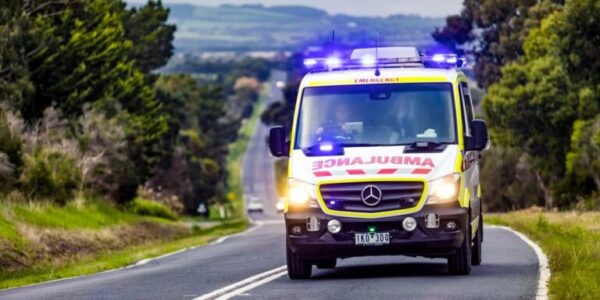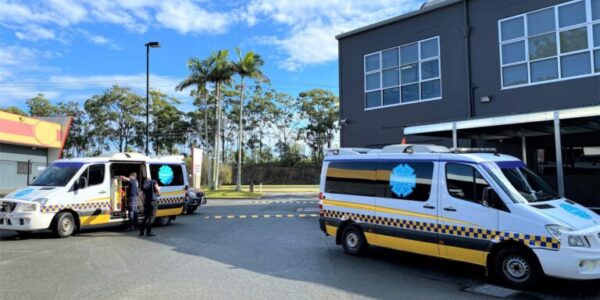What is a Search & Rescue Paramedic?
Search & Rescue Paramedics or Rescue Medics are experts in emergency response and recovery. They provide medical assistance to and remove victims from, dangerous and unpredictable situations.
When you think of a Search & Rescue Paramedic, you probably imagine them abseiling off a vertical cliff, or making a rescue from a helicopter flying low over the ocean. While these situations can be part of the job, search and rescue skills can be required in a whole range of scenarios.
Search & Rescue Paramedics have been at the frontline of some of the world’s most devastating disasters like extreme flooding, bushfires, earthquakes, and avalanches. Additionally, they also play a pivotal role in urban rescues involving collapsed buildings, as well as mining and military rescues.
Each is skilled in providing medical care and executing rescues within complex environments, terrain, and structures. Often the first on the scene, they must be able to provide all the medical care and reassurance of a Registered Paramedic. They can additionally provide the specialist care their patients may need (for burns or smoke inhalation, for example) while navigating rapidly changing environments.
How to become a search and rescue paramedic
Before specialising as a Search & Rescue Paramedic, you’ll need to have a number of years’ experience as a Registered Paramedic.
Studying the HLT51020 – Diploma of Emergency Health Care with Australian Paramedical College (APC) can help you build the foundational knowledge and practical skills you need to get on the pathway to university to become a Paramedic. With a few years of on-road experience, you can continue your studies and specialise in search and rescue.
It’s worth noting that for some roles, you may need to have extensive experience and/or specialist skills related to the industries and environments you plan to work in. This could include vertical rescue, confined space/trench rescue, advanced driving, navigation, etc.
What industries and situations does a search and rescue paramedic work in?
Search and Rescue Paramedics can apply their skills to a wide range of industries and situations, including:
- Urban search and rescue: dealing with structural collapses
- Natural disasters: earthquakes, landslides, bushfires, floods
- Military search and rescues, including trench and confined spaces
- Energy and infrastructure industry, including underground or offshore mines, wind farms
Typical job duties of a search and rescue paramedic
A Search and Rescue Paramedic needs to undertake all the standard duties of a Paramedic, as well as specialist tasks relevant to the environment and industry you are working in.
Search and Rescue Paramedics may need to undertake:
- Vertical rescues via abseil or helicopter
- Remote area rescues
- Road crash treatment and rescue
- Water rescues
- Rescues within confined spaces
- Treatment for burns and smoke inhalation
- Assessing and treating conditions that affect survival such as hypothermia, hyperthermia, trauma, and acute or chronic medical conditions
- Maintenance of equipment
- Chemical, biological and radiological procedures
- CBRIE – Risk assessments/procedures
- Recovery/retrieval duties (retrieving bodies)
- Coordination of search teams and search areas
- Radio communications
- Location techniques for finding distress beacons
In addition, you will be required to work closely and collaborate with other rescue teams and humanitarian organisations.
Search & Rescue Paramedic salary
A qualified Search & Rescue Paramedic or Officer has the potential to earn $100,000+ per year working full-time, depending on your level of experience, overtime worked in the year and the risk involved in the particular job*.
*Indigenous Employment Australia (2024)
How to become a Search & Rescue Paramedic
To work under the title of a ‘Paramedic’, individuals are required to hold a Bachelor of Paramedic Science (or similar). Whilst entry is competitive, there are two pathways one can take to apply, one of which provides you with the advantage beforehand too:
Direct Entry
If you’re a high-school leaver or a recent graduate with an ATAR, this is the most popular pathway to take. As each university has differing entry requirements, be sure to do your research beforehand to make sure it fits your wants and needs.
VET Entry
VET stands for ‘Vocational Education and Training’. It focuses on on-the-job training through certificate and diploma level studies, and if you study through Australian Paramedical College (APC), it’s nationally accredited too. Studying APC’s HLT51020 – Diploma of Emergency Health Care can place you on the best pathway to success for VET entry into university, providing you with the chance to gain employment in-field, confidence in your skills, time off your degree and even discounted university fees too! To learn more about this pathway, click the button below.
To become a Search & Rescue Paramedic, you may need to hold further qualifications or meet certain safety requirements as requested by your employer. You will also need a minimum number of years’ experience as a Registered Paramedic first.
What working as a search and rescue paramedic could look like
Hear from APC student, Erin Eames on the work she undertook during the notorious Australian bushfires of 2019 and 2020 through the State Emergency Rescue Service (SES).
When reflecting on the devastating event, Erin shared, “While it was scary at times.. you think, this is exactly what we’ve trained for.. and we can do this.”


